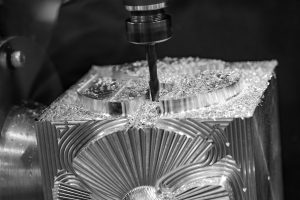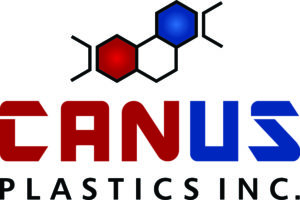How CNC Machining Transforms Plastic Production for Better Products

At Canus Plastics Inc., we are constantly exploring ways to enhance the precision and efficiency of our manufacturing processes. A key player in this endeavor is CNC machining—an advanced manufacturing technology that has revolutionized the way we produce plastic products. CNC, or Computer Numerical Control, machining involves the use of computerized controls to handle complex tools, which carve, mold, and shape plastic materials with exquisite accuracy. This technology streamlines our operations and delivers products that meet the high standards our customers expect.
The journey from a raw plastic sheet to a finely machined part involves intricate planning and precise execution. As we harness CNC machining across our various product lines—from protective barriers for COVID-19 countermeasures to robust components for marketing displays—the benefits are evident not only in the product quality but also in the enhanced operational efficiency. Through this technology, we’re able to automate numerous manufacturing tasks, which traditionally required hands-on intervention, reducing the likelihood of human error and increasing production consistency.
Adopting CNC machining aligns with our commitment to innovation at Canus Plastics Inc. We take pride in our capability to offer custom solutions that meet diverse customer needs in industries such as safety and security, healthcare, and retail. This introduction to CNC machining is just the beginning of exploring how this pivotal technology powers the backbone of our production processes and sets us apart in the industry.
Understanding CNC Machining: What It Is and How It Works
At Canus Plastics Inc., we utilize CNC machining to ensure the utmost precision in the plastic products we craft. CNC machining stands for Computer Numerical Control machining, a process where computer software is pre-programmed to dictate the movement of factory tools and machinery. This technology allows for highly detailed and precise cutting paths in a subtractive manufacturing process, shaping raw plastic materials into finished products.
The operation begins with a digital blueprint created by our engineers. This blueprint is a detailed 3D design of the final product, outlining dimensions, cutting paths, and the specification of materials. CNC machines interpret this blueprint through CAM (Computer-Aided Manufacturing) software, which translates it into a sequence of precise commands. These commands control the machine’s movements down to fractions of a millimeter, ensuring that each cut and curve is executed with exceptional accuracy. This capability is paramount for us as it allows for the creation of complex and intricate designs which are consistently reproducible with each production cycle.
The Advantages of CNC Machining for Plastic Production
Incorporating CNC machining into our production line offers a multitude of benefits that ensure superior product quality and operational efficiency. Here are some of the significant advantages we gain from CNC machining:
- High Precision and Consistency: The automated nature of CNC machining guarantees that each part of the plastic product is produced with high precision and uniformity. This is crucial for products that require complex geometries or need to fit seamlessly into other components.
- Increased Efficiency: CNC machines operate at a speed that manual processes cannot match. Once the design parameters are set, these machines can produce large volumes of components quickly, reducing overall production time and increasing our capacity to meet customer demands swiftly.
- Flexibility in Manufacturing: CNC machining supports a range of materials and designs, which allows us to produce diverse plastic products. Whether it’s designing sturdy election boxes or sleek marketing display cases, our machines are equipped to handle various manufacturing requests with ease.
- Waste Reduction: Precision in machining also means that the amount of wasted material is minimized. By precisely cutting the plastic materials according to specific designs, we use our resources more efficiently, which not only saves costs but also aligns with our sustainability efforts.
- Enhanced Safety: Automated processes reduce the need for direct human interaction with the sharp and heavy machinery, resulting in a safer work environment. Our employees oversee and manage the CNC operations via computer systems, significantly mitigating risks associated with manual machine handling.
By leveraging CNC machining, we at Canus Plastics Inc. ensure that the products we deliver are not only of high quality but also produced efficiently, safely, and responsibly. This technology has undoubtedly become a cornerstone of our manufacturing process, allowing us to meet and exceed the emerging demands and expectations of our diverse clientele.
CNC Machining Techniques: From Design to Production
In our operations at Canus Plastics Inc., CNC machining stands as a pillar of precision and efficiency from the initial design all the way to the final product. The journey begins with detailed CAD models where every curve and dimension is meticulously planned. This digital blueprint is then fed into our CNC machines, which are programmed to carve, mill, and shape the plastic materials with exactitude that handcrafting simply cannot match.
The versatility of our CNC machining techniques allows for the integration of various features and complex geometries directly into the design with precision. This capability is crucial when creating components with complex internal structures or when multiple levels of functionality must be integrated into a single piece of plastic. By streamlining production and reducing the need for multiple prototypes, we not only save time but also minimize material waste, aligning with our sustainability commitments.
Exploring the Future of CNC Machining in Plastic Manufacturing
Looking ahead, the future of CNC machining in plastic manufacturing is promising and filled with potential innovations that could further transform the industry. As technology advances, we anticipate more integrated systems where artificial intelligence and machine learning will play significant roles in further increasing precision, reducing waste, and maximizing efficiency.
Furthermore, the development of new plastic materials with enhanced properties such as improved heat resistance or greater strength will expand the applications of CNC machining in sectors like aerospace and medicine. These advancements will enable us to produce even more complex and functionally diverse products that meet the highest standards of safety and durability.
Final Thoughts
As we continue to refine our techniques and embrace emerging technologies, CNC machining will remain central to our ability to deliver high-quality, precision-crafted plastic products at Canus Plastics Inc. The impact of CNC technology stretches beyond ordinary production—it empowers us to innovate, adapt, and excel in a competitive marketplace. With a commitment to quality and a focus on the future, we are set to maintain our position at the forefront of the plastic manufacturing industry.
If you’re looking to harness the potential of CNC machining for your project, or if you wish to learn more about our services and capabilities, we invite you to reach out. Trust Canus Plastics Inc. to bring your concepts to life with precision and excellence. Connect with us today to start your manufacturing journey.

